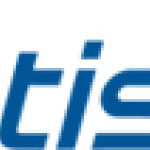- Branche: Telecommunications
- Number of terms: 29235
- Number of blossaries: 0
- Company Profile:
ATIS is the leading technical planning and standards development organization committed to the rapid development of global, market-driven standards for the information, entertainment and communications industry.
A queuing discipline in which entities in a queue leave the queue in the reverse order from that in which they arrived. Note: An understanding of FILO techniques is important in the understanding of store-and-forward capabilities in packing switching.
Industry:Telecommunications
A queuing discipline in which entities in a queue leave the queue in the same order in which they arrive. Note 1: Service, when available, is offered to the entity that has been in the FIFO queue the longest. Note 2: FIFO techniques are used in message switching.
Industry:Telecommunications
A radar system that makes use of the atmospheric reflection and refraction phenomena to extend its range of detection beyond line of sight. Over-the-horizon radars may be either forward scatter or backscatter systems.
Industry:Telecommunications
A radiating element formed by a slot in a conducting surface or in the wall of a waveguide.
Industry:Telecommunications
A radiation pattern from a directional antenna, such that the energy of the transmitted electromagnetic wave is confined to a small angle in at least one dimension.
Industry:Telecommunications
A radiation pattern measured at the far field of an antenna or other emitter.
Industry:Telecommunications
A radio broadcasting service that is operated by and for the personnel of the armed services in the area covered by the broadcast. Note: An example of an AFRS is the radio service operated by the U. S. Army for U. S. And allied military personnel on duty in overseas areas.
Industry:Telecommunications
A radio consisting of a receiver and/or a transmitter, where each has the following properties, respectively: (a) the received signal is digitized and then processed using software-programmable digital signal processing techniques (digitization may occur at the rf, IF, or baseband); (b) the modulated signal to be transmitted is generated as a digital signal using software-programmable digital signal processing techniques; the digital signal is then converted to an analog signal for transmission (the conversion to analog may occur at baseband, IF, or rf); and (c) a key element of these radios is that software programmability allows easy changes of the radio's fundamental characteristics such as modulation types, operating frequencies, bandwidths, multiple access schemes, source and channel coding/decoding methods, frequency spreading/despreading techniques and encryption/decryption algorithms.
Industry:Telecommunications
A radio frequency that a station uses to call another station.
Industry:Telecommunications
A radio link between a transmitting Earth station and a receiving Earth station through one satellite. A satellite link comprises one uplink and one downlink.
Industry:Telecommunications
